By David Goddard.
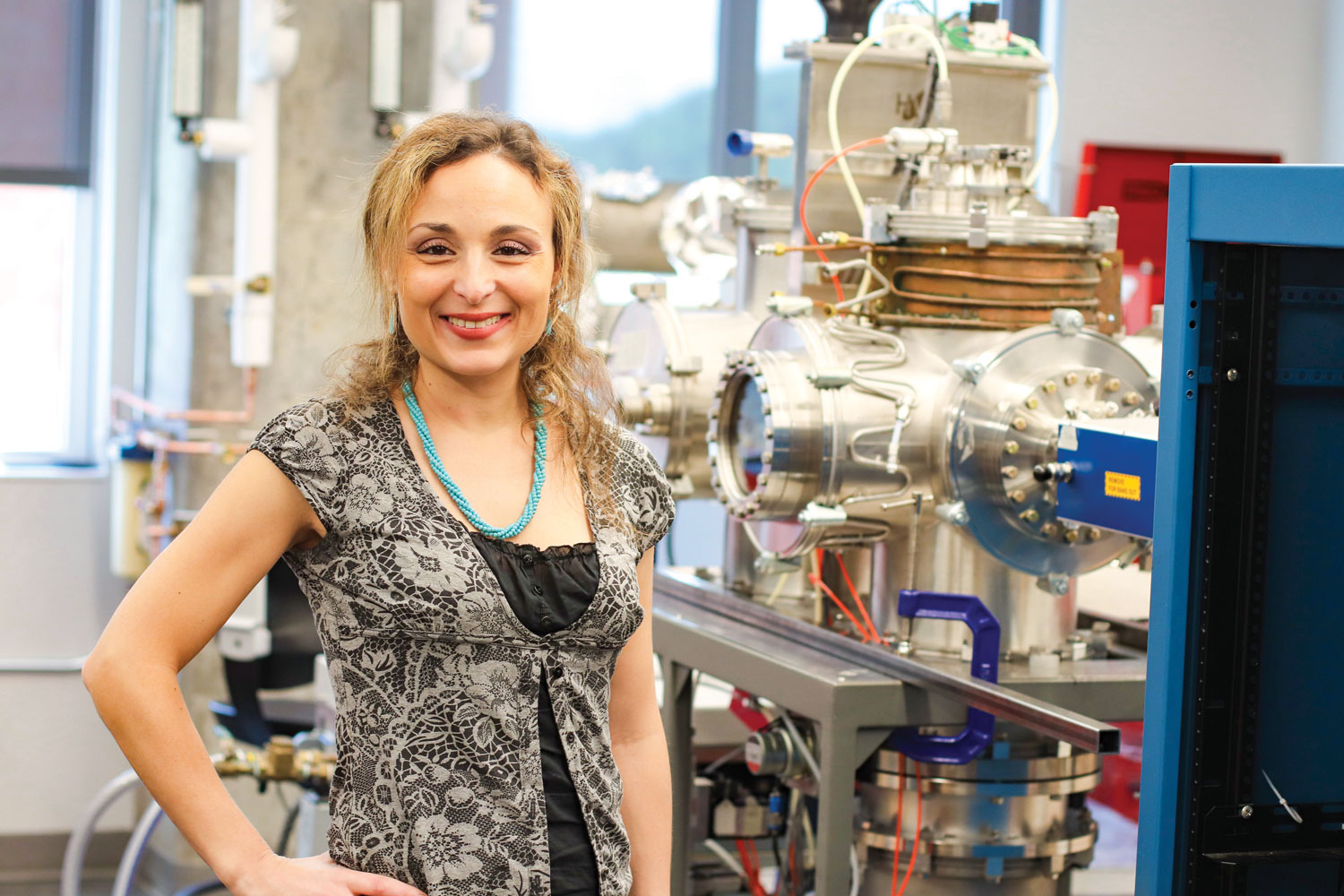
DoE Recognizes Excellence in Fusion Research
One issue in making fusion practical is core-edge integration—the need to get temperatures in the core hot enough so that plasma is produced, but doing so in a way that the edges of the vessel containing the plasma don’t degrade and impair the fusion reaction.
Zinkle Faculty Fellow and Assistant Professor Livia Casali (NE) has spent her career working on the issue, and she recently received a Department of Energy Office of Science Early Career Award for those efforts.
The reactions studied by Casali take place in a type of fusion chamber known as a tokamak, which uses a high-powered magnetic field to contain and control plasma thanks to the electromagnetic nature of the charged particles in plasma itself. Because the core and the edge of the plasma are governed by different physics, understanding how those regions interact and can be integrated represents an extraordinary challenge encompassing a wide range of spatial scales and a broad energy and temperature range. It represents a critical step toward fusion and the clean and limitless source of energy that it may provide.
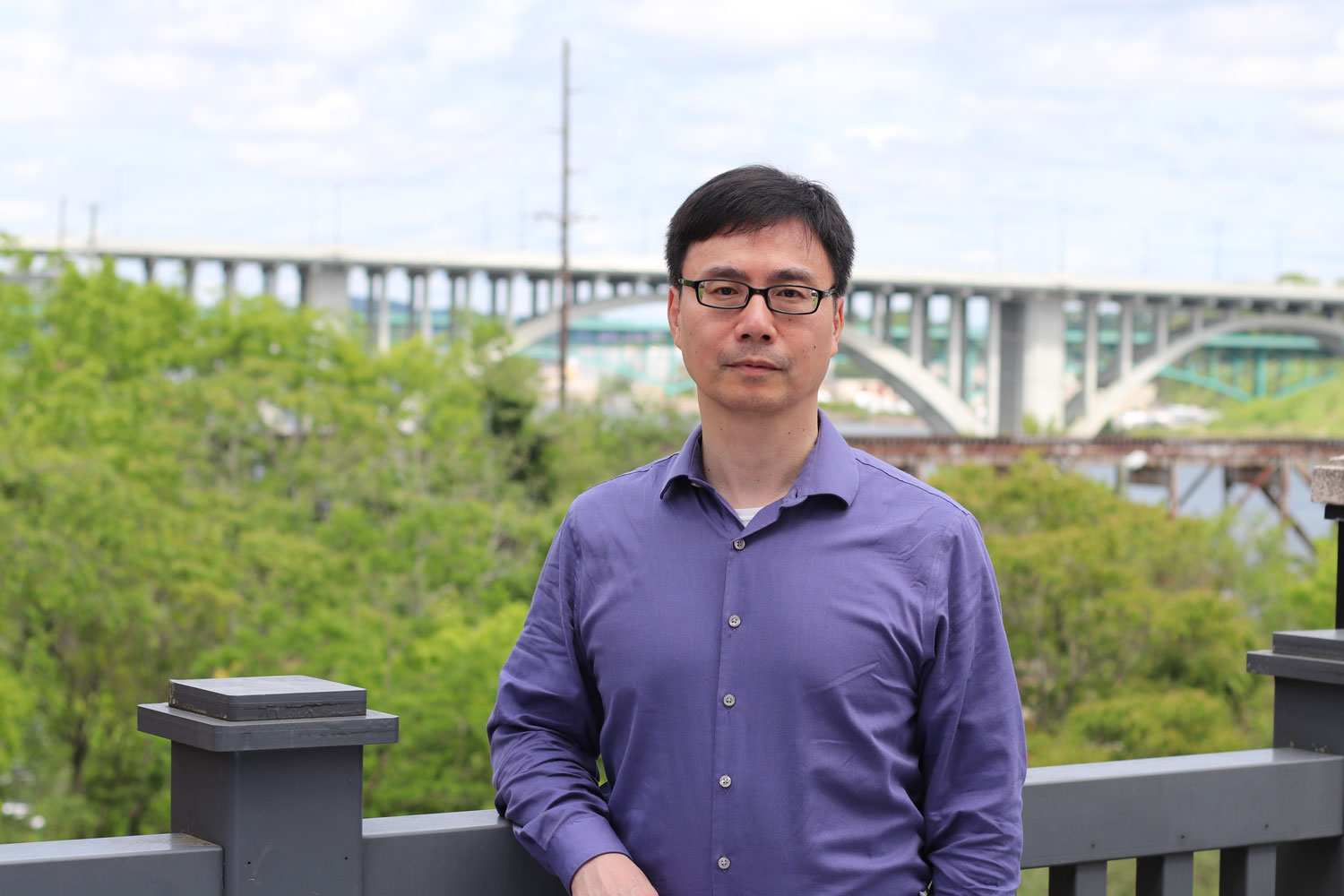
A Familiar Face Set to Lead Industrial and Systems Engineering
John D. Tickle Professor Mingzhou Jin has been selected as the new head of the Department of Industrial and Systems Engineering, effective August 1, becoming the 12th person to hold the position in a full-time or interim basis in the program’s 77- year history. He will continue his role as director of the Institute for a Secure and Sustainable Environment.
Jin earned both his bachelor’s degree in electrical engineering and his master’s degree in management science at Zhejiang University in Hangzhou, China, in 1995 and ’98, respectively. He earned his doctorate in industrial and systems engineering from Lehigh University in 2001.
A Fellow of the Institute of Industrial and Systems Engineers, he has earned several honors in his time at UT, including the Chancellor’s Citation Award for Research and Creative Achievement, the TCE Research Achievement Award, TCE Teaching Fellow Award, TCE Outstanding Faculty Service Award, and TCE Outstanding Faculty Advising Award, among others. Jin currently serves as editor-in-chief of Cleaner and Circular Bioeconomy, executive editor of the Journal of Cleaner Production, and as an editorial board member of The Engineering Economists.
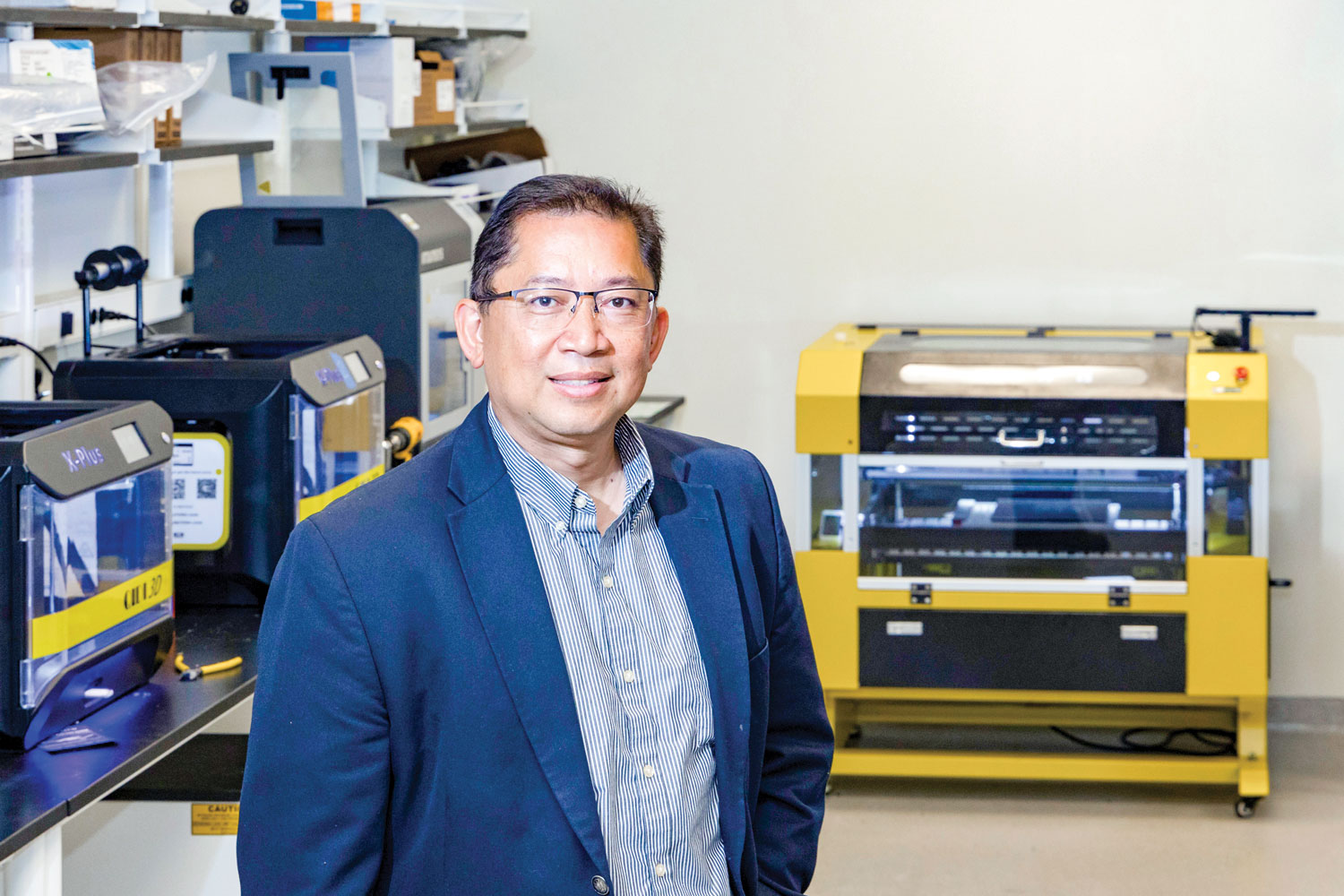
Royal Society of Chemistry Selects Advincula
A well-recognized figure in the world of polymers, nanomaterials, and materials science, UT–ORNL Governor’s Chair for Advanced and Nanostructured Materials Rigoberto Advincula (CBE) has been cited around the world by researchers who use the knowledge he has gained to help in advancing new materials and understanding scientific phenomena across a number of fields. Now he is gaining one of the top honors in his field, having been selected a fellow of the Royal Society of Chemistry through its Leaders in the Field program, which identifies individuals for their outstanding contributions to chemistry.
The society is the oldest official group devoted to chemistry in the world. It was first granted a royal charter in 1848. In the 175 years since, some of the most recognized names in the history of chemistry have been members. Being named a fellow of the society is a select honor reserved for those who have significantly influenced the field.
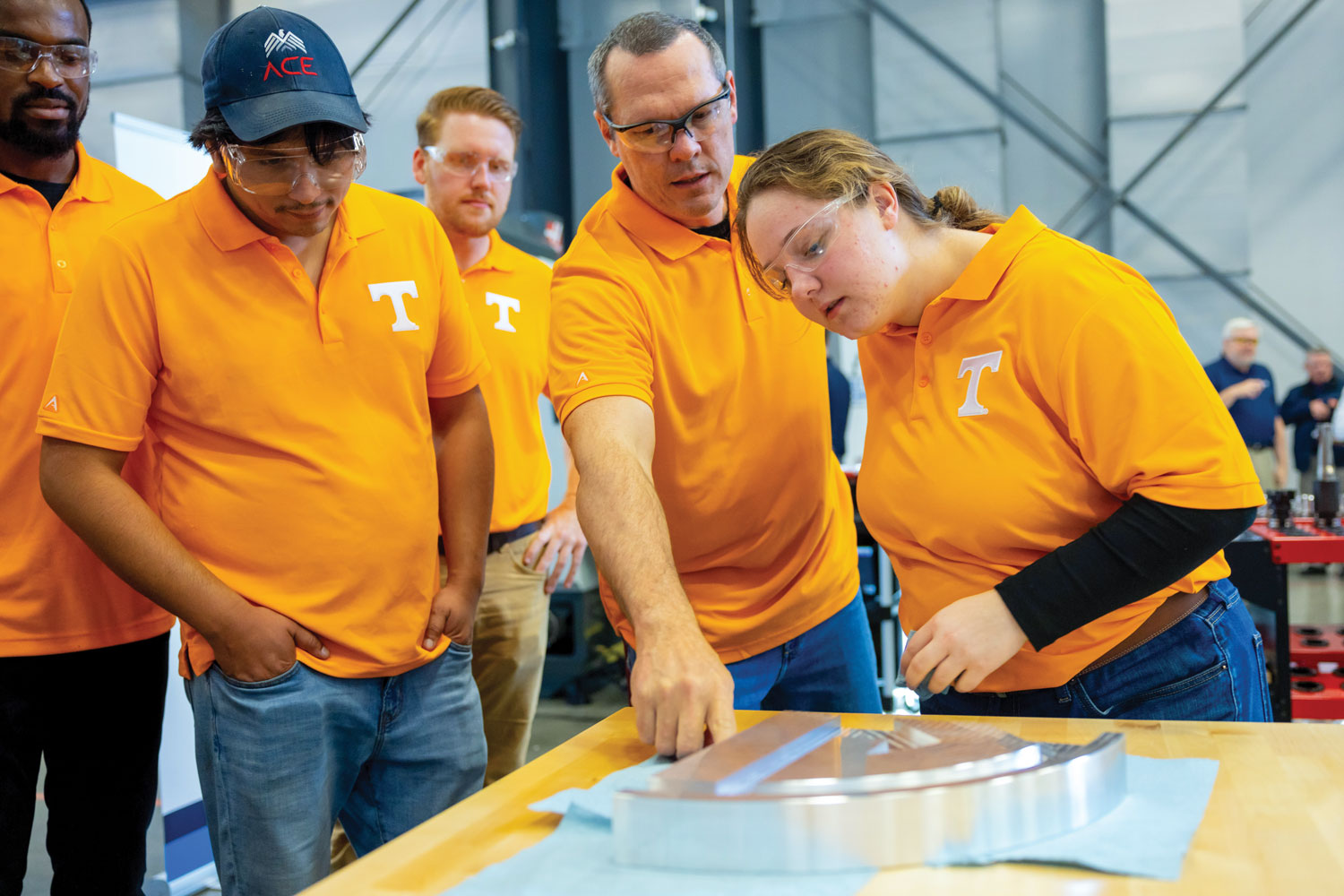
International Academy for Production Engineering Selects Schmitz
The International Academy for Production Engineering, or the Collège International pour la Recherche en Productique, has a broad mission of production engineering research, and its membership is limited to the top minds in the field. Professor Tony Schmitz (MABE) was recently elected an associate member—one of just a handful from the United States currently serving as members and only the second from Tennessee.
Schmitz has a wide variety of roles at UT, with Oak Ridge National Laboratory, and with IACMI—The Composites Institute. He leads UT’s Machine Tool Research Center, which houses the recently announced Gene Haas Machine Tool Research Academy; serves as director of the Southeastern Advanced Machine Tools Network, which addresses challenges in machining through training and technological breakthroughs; and serves as training content developer for America’s Cutting Edge, an effort supported by the US Department of Defense Industrial Base Analysis and Sustainment Program with the goal of restoring American manufacturing strength by providing training related to manufacturing and machining.
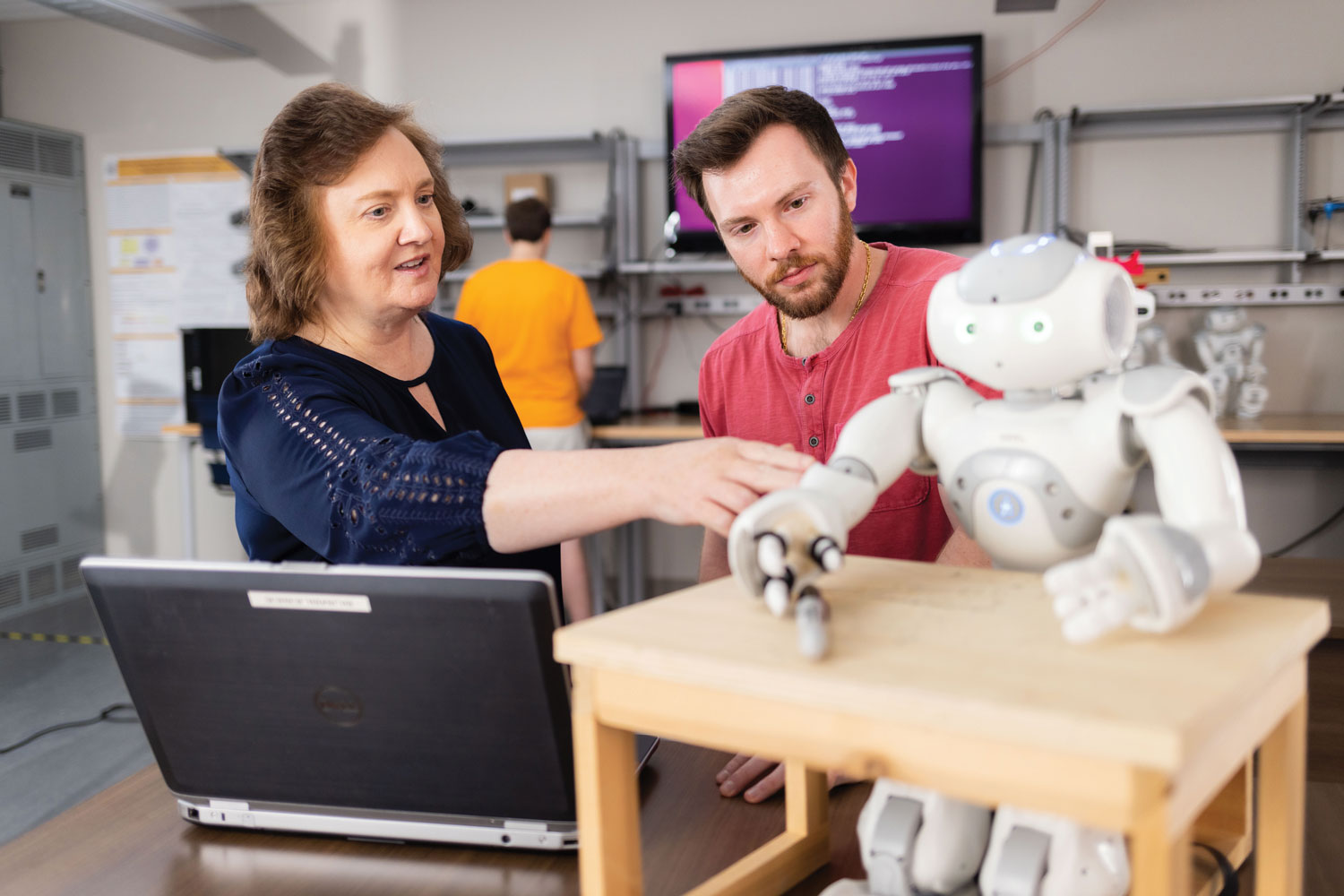
UT Establishes AI Tennessee Initiative
After completing a four-year post as deputy US chief technology officer and director of the National Artificial Intelligence Initiative Office within the White House, Professor Lynne Parker (EECS) returned to UT to serve as associate vice chancellor and director of the new AI Tennessee Initiative. She will lead the university’s strategic vision and strategy for multidisciplinary artificial intelligence education and research. The initiative is designed to increase UT’s funded research, expand the number of students developing interdisciplinary skills and competencies related to AI, and position the university and the state of Tennessee as national and global leaders in the data-intensive knowledge economy.
In her stint with the White House, Parker oversaw the development and implementation of the national artificial intelligence strategy. Before joining the White House Office of Science and Technology Policy in 2018, Parker served as interim dean of the college. She has also served as the National Science Foundation’s division director of information and intelligent systems.

Fabrication at the Atomic Level Covered in International Presentation
The Manuel Cardona Seminar Series is one of the most selective conferences in the world of nanotechnology and nanomaterials, with attendance limited to an invitation-only audience. Being asked to speak at the conference is a prized honor, as it signifies a researcher’s work as being among the best of the best. The series is named in honor of Professor Manuel Cardona, who worked around the world before becoming the founding director of the Max Planck Institute for Solid State Research.
Weston Fulton Professor Sergei Kalinin (MSE) was invited to present one of the lectures in the series, hosted recently by the Catalan Institute of Nanoscience and Nanotechnology in Barcelona. Kalinin’s lecture, “Bits to Atoms and Atoms to Bits: Automated Experiment and Atomic Fabrication in Electron Microscopy,” covered a number of topics but focused on what automation could mean for the fabrication of objects at the atomic level, the next steps needed in the development of technology to allow that fabrication, and what the future could hold for atomically precise devices.

A New Wave of Flight
Unstart, where the airflow can be disturbed and transform into sub-optimal flows, is a problem that can plague a high-speed propulsion systems known as scramjets, which operate in a range faster than normal jet engines, up to the hypersonic level. Hypersonic speed is generally considered to be above Mach 5, or about 3,700 miles per hour.
Both scramjets and ramjets feature internal combustion that takes place after high speeds have forced incoming air to become compressed before combustion. Unlike ramjets, which use a dampening mechanism to slow the flow before it exits the engine, flow from scramjets is released at full throttle, helping them perform at much higher speeds.
Through a US Navy Office of Naval Research grant, Ragini Acharya (UTSI) and her collaborators at the University of Michigan hope to better model and predict unstart, helping to lessen its impact on the flight dynamic of the engine. The team will also try to develop sensors, studying how different types, placements, and specifications interact until they find the optimal solution.